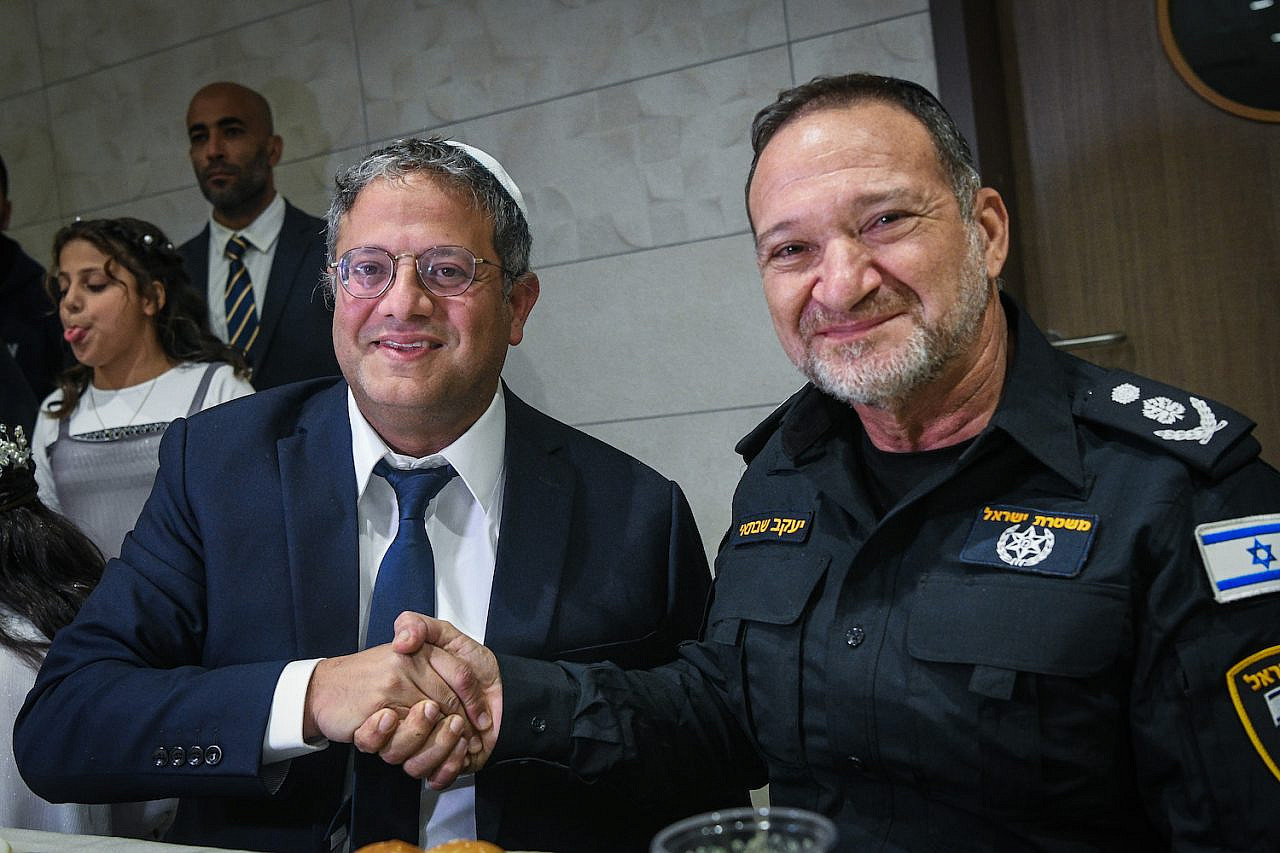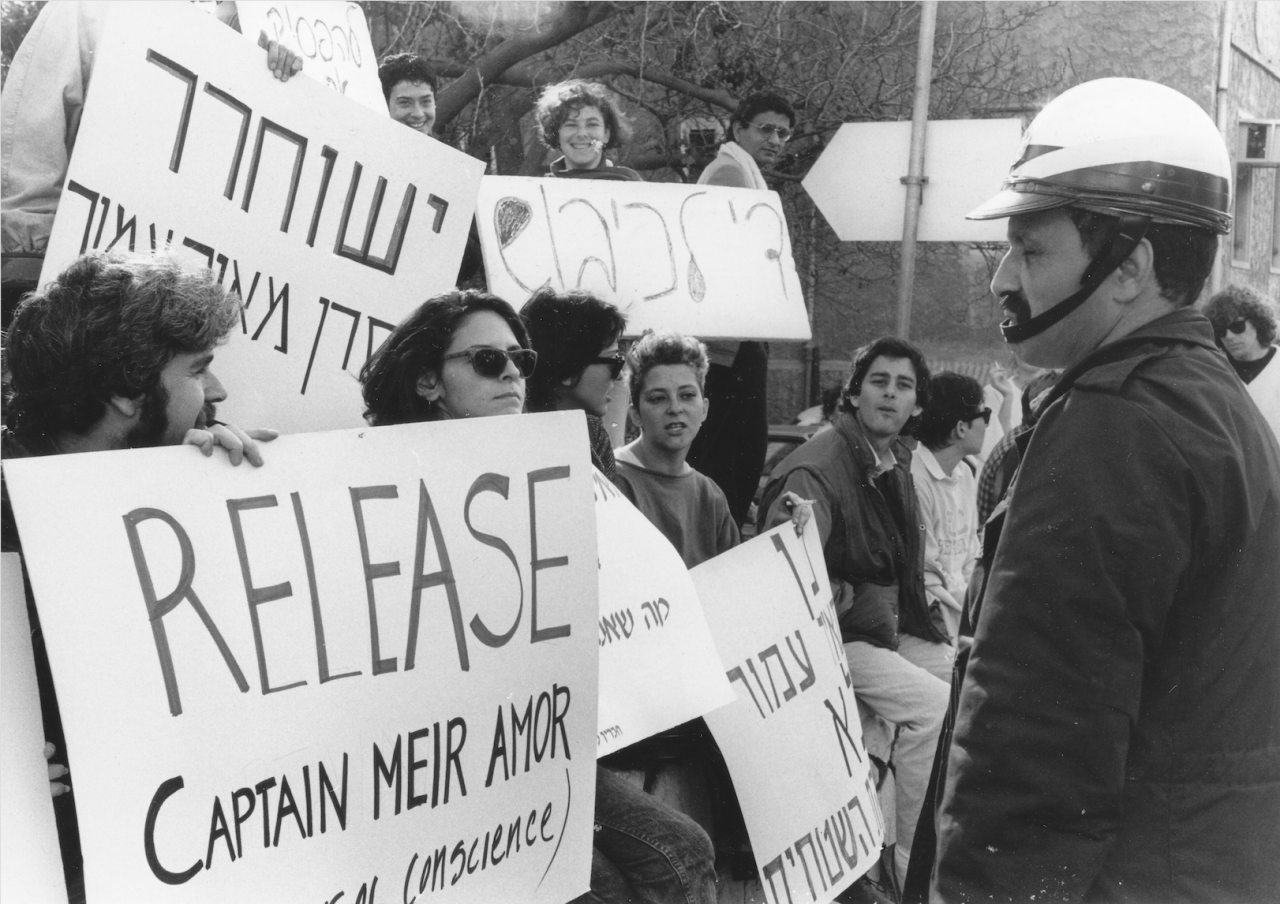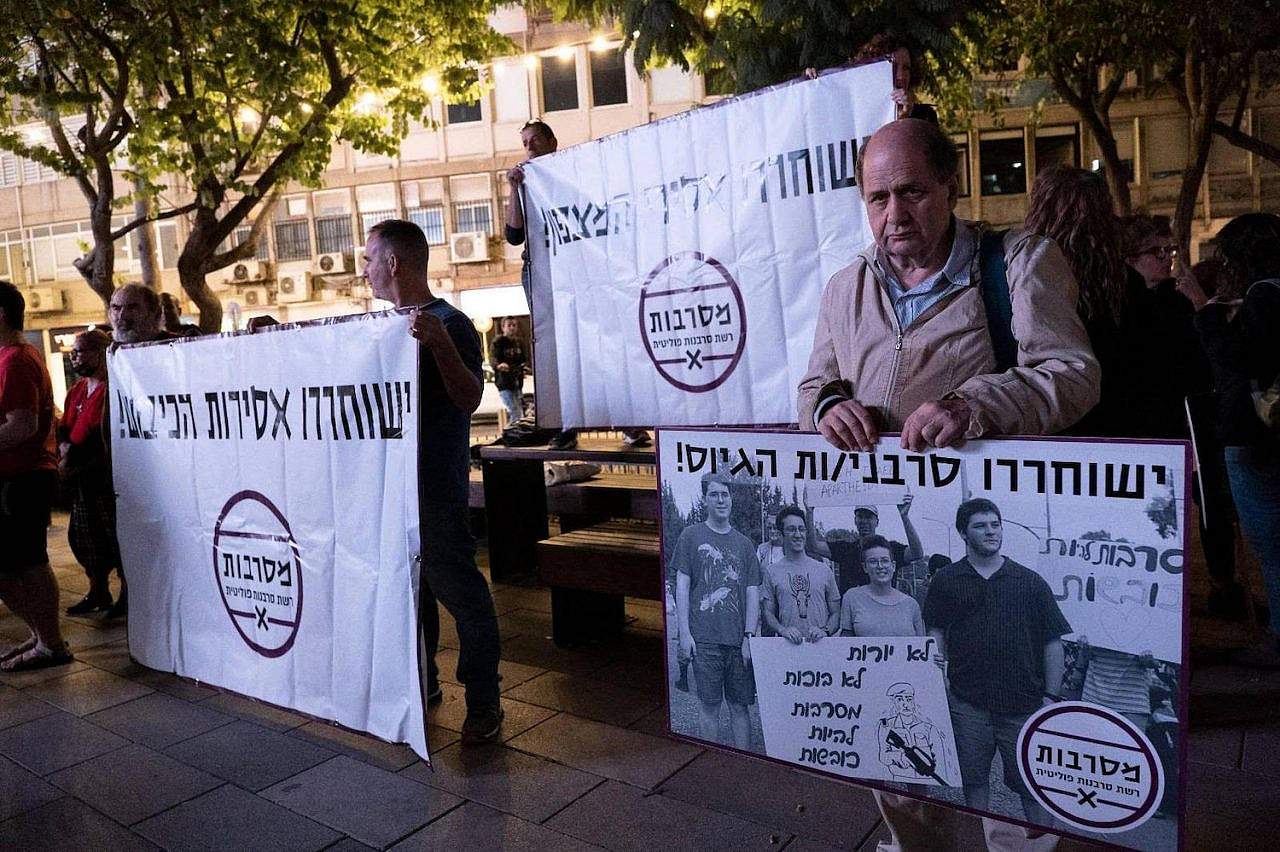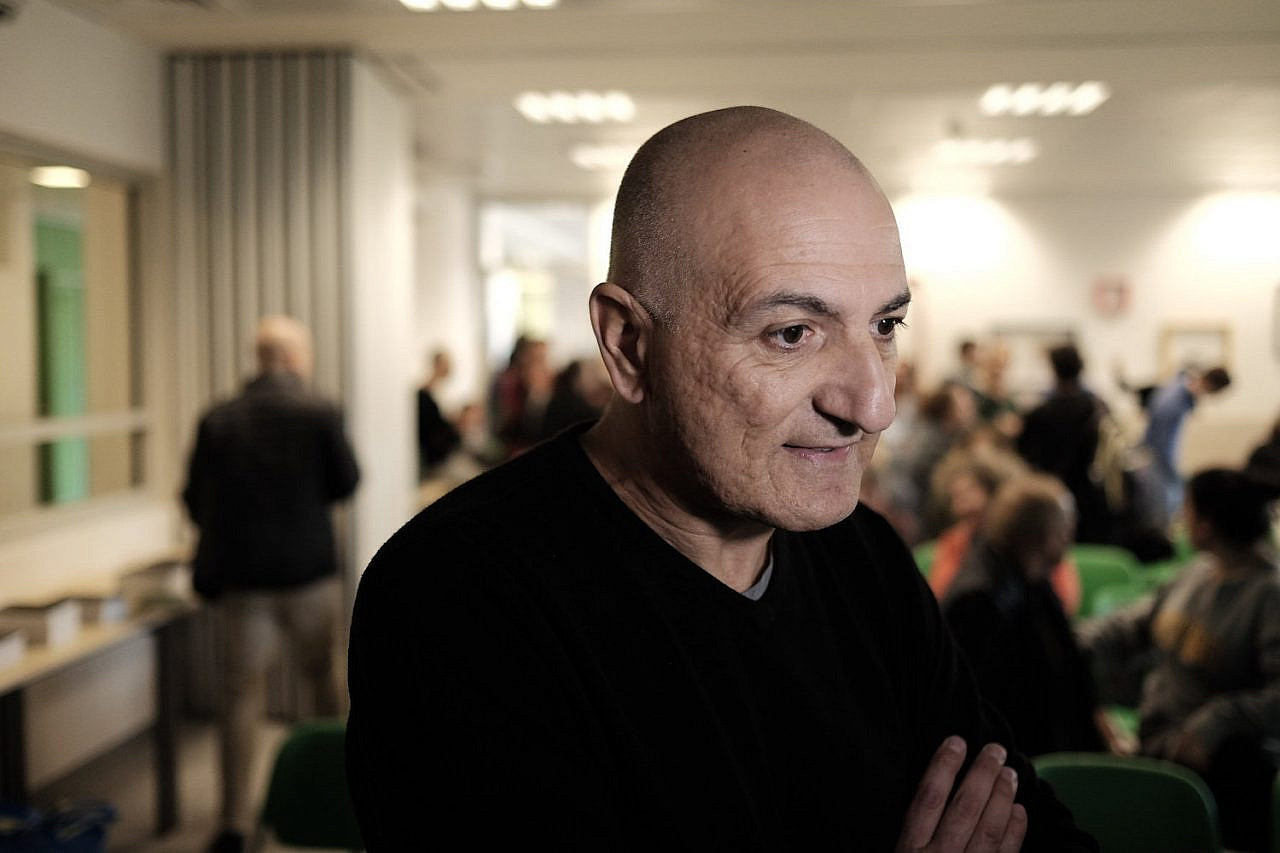It didn’t take long for the incoming far-right government to announce its racist, anti-democratic plans, particularly for Palestinians and the Israeli Jewish liberal-secular public. What many are calling a “nightmare government” has prompted senior politicians from the opposing camp to call for mass “civil disobedience” in the form of protests and the refusal to cooperate with the religious fundamentalists who are about to run the country.
On the grassroots level, it seems refusal to enlist in the Israeli army, or at least to serve in the occupied territories — which has long been a marginal but high-profile form of civil disobedience in Israel — may very soon start to become more widespread. The fact that leader of Otzma Yehudit leader and presumed Minister of National Security Itamar Ben Gvir, and Religious Zionism head Bezalel Smotrich, who is about to acquire broad powers in the West Bank, will be leading political figures in Israel’s security and military establishment, crosses a red line for many Israeli Jews. Some, it seems, are beginning to second-guess their instinctive resistance to refusing the draft.
Organizations that support conscientious objectors are already reporting an increase in the number of Israelis reaching out to them in the wake of last month’s elections, including Israelis on the Zionist left who previously have not considered refusal. Mesarvot (“Refusers”), one of the most prominent NGOs supporting conscientious objectors, has seen the number of Israelis contacting the organization — both teenagers due to be drafted and their parents — double. Yesh Gvul, another Israeli group that advocates for draft refusal, has registered a similar jump.
“After the elections, we started to receive more inquiries” said Yasmin Eran Vardi, a coordinator at Mesarvot. “Another change is that it’s usually young people who approach us ahead of their draft [date], but right now lots of parents are getting in touch with us. They tell us that their children are not sure what to do, while the parents themselves are saying, ‘I’m not ready for them to be in the army under this government.’”
Head of the Otzma Yehudit party MK Itamar Ben Gvir (left) and Chief of Police Kobi Shabtai at Ben Gvir’s daughter’s Bat Mitzvah ceremony in the West Bank settlement of Kiryat Arba, December 8, 2022. (Arie Leib Abrams/Flash90)
Many of the parents, and even some of their children, say that it was Ben Gvir’s senior appointment as the reason to refuse enlistment, Eran Vardi said. “The parents say that this is crossing a line for them. I do not think that we’re going to see a mass refusal, but [Ben Gvir’s appointment] will swell the numbers — both of young people sitting in jail as well as those who [refuse] in other ways. The question is how the army will deal with it.”
There is already evidence that the army fears a wave of refusals, as recently demonstrated by the unusually severe punishment handed down to four conscientious objectors. Since September, they have spent four separate stints in jail, and last week they were sentenced to another 45 days.
Noa Levy, a lawyer at Mesarvot who represents the four refusers, said last week that the military is using harsher penalties for conscientious objectors as a scare tactic. “A source in the security establishment hinted to me that there are concerns about a wave of refusals after the expected entrance of MK Itamar Ben Gvir into the government,” she said. “There are already four refusers in the system, last month there were two more, and next month another two are expected to refuse. We haven’t seen so many people sitting [in prison] simultaneously in a long time.”
Ishai Menuchin, one of the founders of Yesh Gvul, a movement that has been assisting conscientious objectors since the 1982 Lebanon War, also believes Israel is “on the cusp of a wave of refusals,” noting a rise in inquiries to his organization. “Over the last few days we’ve had three inquiries from reservists, and during the Saturday shift [to support conscientious objectors] a mother approached me for advice. This is a clear increase. In previous years we would receive one call every week or two.”
Menuchin believes this change is caused by the growing visibility of what was previously unspoken government policy. “Smotrich and Ben Gvir are removing the mask, which is raising people’s fears. It is suddenly clear what’s being asked of them — to be an annexationist force, an occupying force, a repressive force, and that this is not temporary. In the last few weeks, the true face of the occupation has been revealed, and it’s helping people who aren’t radicals understand that this situation is here to stay.”
Students from Tel Aviv University protest for the release of conscientious objector Meir Amor in front of the Ministry of Defense, Tel Aviv. Amor refused to serve in the First Lebanon War and was sentenced to prison, February 15, 1988. (Vered Pe’er, Hashomer Hatzair archive/The National Library of Israel)
Menuchin pointed out that refusals have always come in waves. “There was the wave of the First Lebanon War, when 160 people sat in jail out of 1,500 who refused to serve. There was a wave in the First Intifada, when 180 sat in jail out of an estimated 2,000 conscientious objectors whom the army didn’t want to deal with. In the Second Intifada, with Ometz L’sarev (“Courage to Refuse”) there were many dozens jailed, out of thousands, who the army also didn’t want to deal with.”
At New Profile, an organization that for the past 25 years has been providing assistance to young Israelis who cannot or do not want to serve, staff have observed parents and pre-draft teenagers citing the proposed new government in their decision. “Some of the people approaching us say they’re afraid of serving in the army under Smotrich and Ben Gvir. They are afraid that the government will become even more fascist, and some [parents] even wondered whether they should leave the country before their children reach military age,” said Or, a coordinator for the group who did not want to provide her full name.
Or added, however, that even though those on the Zionist left are reaching out with new questions, including those in youth movements that strongly push for enlistment, she nonetheless expects a rise in the draft during enlistment cycles, “because education will be more extreme, nationalist, and militaristic. But perhaps more people will choose to be exempted from service, after seeing the violent reality.”
The mother of a high school student from the center of the country, who asked to remain anonymous, said: “My son is 16 years old. I’ve already hoped for a while that he would not go to the army. It’s very important to make this seem like a legitimate option at home, but ultimately it is his choice. I don’t want to pressure him.”
Israeli protesters demonstrate outside the Tel Aviv Cinematheque in support of four conscientious objectors imprisoned for their refusal to serve in the army, December 3, 2022. (Keren Manor/Activestills.org)
“The option to refuse is on his mind, but he’s not clearly inclined in that direction,” the mother continued. “A few weeks ago, the mother of a friend of his organized a discussion on the occupation, which was incredibly dramatic, and which exposed the gap between what they know about the reality and the personal story of the session leader. Since then, his thinking has changed. He wanted to go on a tour of Hebron, and he told me that he ‘won’t go [to the territories] in uniform.’”
The mother added that she is not sure what action her son will take, “whether he will refuse the draft, incompatibility [those who are unable to complete military service due to their specific personal circumstances, such as criminal records or exceptionally complex family backgrounds], or try to avoid serving in the territories, but it preoccupies him. Close friends of mine, who were very much not interested in [conscientious objection] and who were clear that their kids needed to enlist, are now saying otherwise,” she continued. “I haven’t heard this before. The policies and the dangers [the new government] will bring, the photos from Hebron of a soldier beating [a peaceful activist] while his friend shouts that Ben Gvir will ‘bring order here,’ it’s having an impact.”
She and her son have discussed two questions relating to draft refusal: “The first is whether there’s a point at which, under a government based on injustice, it is appropriate not to serve. Most people agree, especially when they look at examples from history. The second question is whether we’ve already crossed that line. For me, we crossed it a while ago, and now a lot of other people understand that under the new government, we’re past that point.”
Last weekend, Ram Cohen, a high school principal in Tel Aviv who is currently on sabbatical, joined those calling on young Israelis to refuse to serve in the occupied territories. In a Facebook post, he wrote that it is “already permissible to declare that you will not serve the occupation, because the occupation belongs to the messianic, extremist, destructive, anti-democratic right. It’s not defending the state, and we should not be told such fairy tales. It’s defending a messianic dream that we are not partners in, and with which we should not collaborate.
“I call on parents whose children are about to enlist to do everything they can so that [their kids] won’t serve in the territories,” Cohen continued in his post. “I call on teenagers not to serve there. Take back control of our lives. Refuse to play the violent political game that the right is forcing upon us and upon the entire public, because it serves them, and ensures not only their brutal rule over Palestinians but also their never ending rule over us. They want to destroy us and embitter our lives. They will form a coalition with criminals, shirkers, and fascists. It’s time to break the rules. We will not take part, and we are not afraid.”
Former high school principal Ram Cohen attends an event organized by Breaking the Silence, Alterman High School in Tel Aviv, December 18, 2016. (Tomer Neuberg/Flash90)
Regarding his decision to openly call for draft refusal, Cohen said: “As a human being, as an educator, as someone who for years has trained students and spoken about the duty to enlist in the army, I think it was right to come and say: ‘I’m sorry, I don’t think that the current reality justifies serving in the occupied territories, period.’”
Cohen says he is uninterested in speaking with mainstream media outlets, but only with parents and children, and hopes that his words will “influence 200 children a year, so that they say they will not be willing to serve in the [occupied] territories.
“My role as an educator is to break through, to tear the membrane surrounding the idiotic consensus we see that treats Palestinians as an eternal enemy and that enables us to repress what’s happening. Recently, terror inflicted by the state of Israel on Palestinians has been increasing – killings and violent attacks by the army with no accountability. And with the current government, we’ll kill even more of them.”
Cohen hopes that other educators will join in his call. “I would want to see other school principals joining, more educators and teachers, who will [at least] come and say that we must end this murderous behavior in the occupied territories, even if they won’t call for refusal [to serve] in the territories.”
Meanwhile, conscientious objectors organizations are beginning to formulate plans for working with young Israelis who approach them. Eran Vardi, of Mesarvot, said that the organization will work to support new refusers. “In general, at Mesarvot, the activists are more radical – it’s not like they would serve in the army of [mainstream Israeli leaders like] Benny Gantz or Yair Lapid. But it’s clear that there are many more young people who don’t want to be part of an army controlled by this government, and we are trying to understand how to invite them to participate in this struggle.”
“The army doesn’t want refusal to become a political issue,” said Menuchin of Yesh Gvul, “so when a wave starts they will try to repress it, to make the punishments more severe, like what happened with the four most recent conscientious objectors. But it won’t help.”
A version of this article first appeared in Hebrew on Local Call. Read it here.
ZNetwork is funded solely through the generosity of its readers.
Donate




